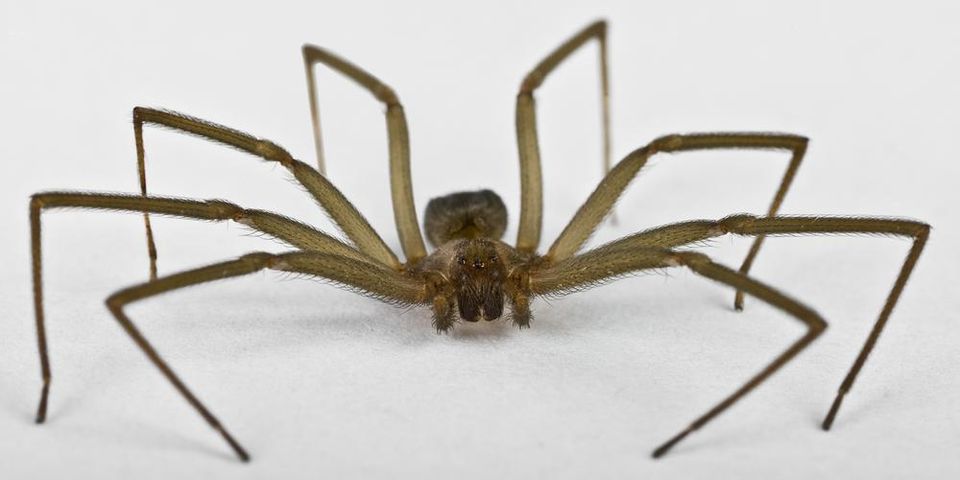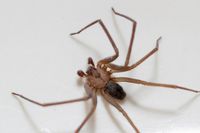The Brown Recluse Spider: Why Worry? Exterminators Explain

Spiders are one of Americans’ biggest fears, which is all the more reason to make the exterminators at Denning Pest Control in Jefferson City, MO, your new best friends. Recently, the Brown Recluse spider has quietly become an unwanted roommate in homes throughout the Midwest, and it’s important to learn the basics of these nocturnal stalkers so you can identify them in your house.
First off, how do you identify the Brown Recluse? They aren’t easy to miss. Fully-grown Brown Recluses are roughly the size of a U.S. quarter and range from dull yellow to dark brown in color. Their calling card is a violin shape on their neck, as well as six pairs of eyes with a space between each set. It’s not something you want to find nestled beside you in bed at night or darting out of your pantry, so call exterminators at Denning Pest Control if you come across one in your home.
 It’s also important to know what to look for if you think you might have some uninvited guests in your home. As their name implies, Brown Recluses keep to themselves, usually hiding in attics, inside walls, or other secluded dark places. If you come across one, it may just be a rogue that snuck in through the back door. Pest control services advise looking for loose ground-level webs in clutter and debris around your home. Brown Recluses are hunters and often use their webs for cultivating eggs, so you should alert an exterminator at Denning Pest Control immediately if you discover signs of an infestation.
It’s also important to know what to look for if you think you might have some uninvited guests in your home. As their name implies, Brown Recluses keep to themselves, usually hiding in attics, inside walls, or other secluded dark places. If you come across one, it may just be a rogue that snuck in through the back door. Pest control services advise looking for loose ground-level webs in clutter and debris around your home. Brown Recluses are hunters and often use their webs for cultivating eggs, so you should alert an exterminator at Denning Pest Control immediately if you discover signs of an infestation.
Finally, why are these creatures so menacing? Brown Recluses are widely considered to be the most poisonous house spider in the country, although they aren’t big on attacking humans. Even though their bites are rarely noticed until hours after they’ve happened, the spiders’ poison can make humans very ill and can also cause tissue damage. Safeguard your health and your family’s well-being with a call to your local pest control company today.
Contact the exterminators at Denning Pest Control in Jefferson City for tips on both prevention and eradication in the event you suspect an infestation. They can help solve the problem, as well as check for signals of other intruders. Visit their website and Facebook page to learn more, and call (573) 442-4010 to ensure you don’t have any eight-legged guests nestling down in your home this spring.
About the Business
Have a question? Ask the experts!
Send your question

